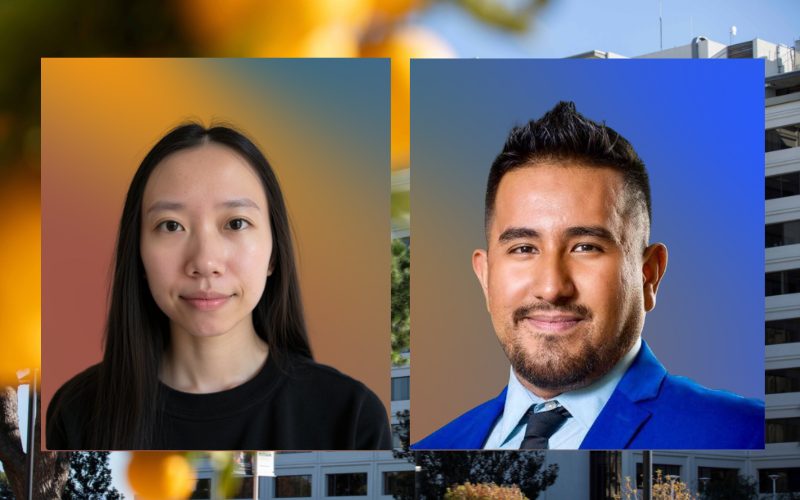
What started as an English class assignment for psychology student Amy Do quickly turned into a research partnership, a $10,000 fellowship and a deeper look at the health experiences of LGBTQ+ Asian American students.
The assignment was to interview a professor in her field whose work aligned with her interests. Do had long been curious about intersectionality and how identity affects health and well-being, so she began researching faculty in the Department of Psychology. That search led her to James J. García, associate professor of psychology and director of the Psychophysiology and Social Interactions Laboratory.
García’s work focuses on how discrimination and stress influence health, particularly among racial, ethnic and LGBTQ+ communities. With more than a decade of experience in clinical health psychology, he has studied health disparities affecting communities of color and LGBTQ+ people of color.
“When I met with Dr. García for that assignment, I didn’t expect it to lead to a research project,” Do said. “But our interests really clicked. He encouraged me to explore my ideas further, and that one conversation opened the door to something bigger.”
From Curiosity to Collaboration
That initial meeting led to a collaborative research project examining the health and lived experiences of LGBTQ+ Asian American students at Cal State Fullerton. With support from the UROC Fellowship Program, offered through the Undergraduate Research Opportunity Center and supported by the Office of Research and Sponsored Programs, Do is leading her first independent study.
“I want to emphasize that within the Asian American community, experiences can vary greatly,” Do explained. “Vietnamese, Korean and Chinese students might have different backgrounds and health outcomes. The model minority myth often hides those differences, and the unique challenges people face. The project’s reliance on an intersectional framework — studying individuals who identify as both LGBTQ+ and Asian Americans — reveal more nuanced experiences that studies on one or the other community would otherwise overlook.”
The project fits within García’s broader research interests and demonstrates the value of student initiative.
“We know that discrimination and stress can affect physical and mental health,” said García. “What is powerful is seeing students like Amy connect those ideas to lived experiences here on our own campus. My role is to guide the process, but she is leading the charge.”
The two meet regularly to review data collection, discuss research design and navigate the institutional review process.
“Research is an iterative process,” García said. “Students bring creativity and new perspectives that expand our own body of work as faculty. UROC gives them the structure and confidence to learn and grow through that process.”
The Power of Taking the First Step
For Do, the UROC Fellowship has provided both structure and support.
“It’s my first project from start to finish, and UROC has supported me financially and academically,” she said. “I’ve learned so much about the research process, from preparing the IRB application to tabling for participants and managing different steps along the way. It’s given me the confidence to take initiative and really lead a project.”
According to Nicole Bonuso, director of UROC, that combination of mentorship and initiative is what the program was designed to encourage.
“UROC exists to make research accessible for all students,” Bonuso said. “But the real impact comes when students, like Amy, take that first step. They reach out, build connections with faculty and discover the opportunities available to them.”
Creating Opportunity and Community
García encourages students to take the initiative that Do did.
“It’s okay for students to stumble,” he said. “Seek out department academic advisers. Go to events, visit office hours and ask about their work. Opportunities often start with just showing up.”
He also hopes projects like Do’s help champion belonging within the campus community: “By understanding students’ experiences, especially those at the intersections of identity, we can create environments where everyone feels they belong.”
Do said she’s grateful to have found a mentor who supported her from the start.
“A lot of professors are really busy, so I was thankful Dr. García took the time to sit down with me,” she said. “That conversation really helped me see what was possible.”
Get Involved
Students interested in pursuing undergraduate research can learn more about the UROC Fellowship Program and other opportunities by visiting the UROC website.